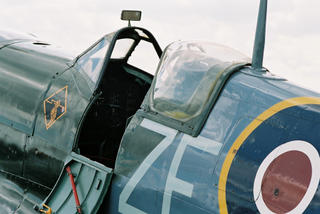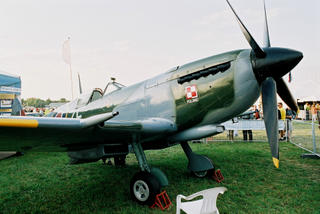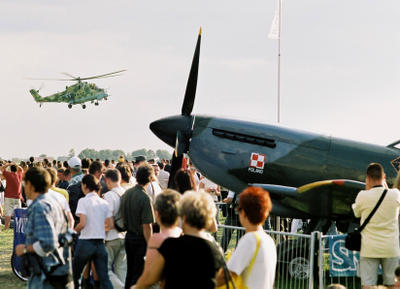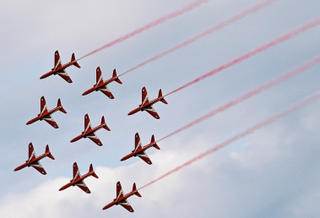Manners are different in Poland to those found in the UK.This is a brusque country in which expressions such as 'please', 'thank you' or 'sorry' in public are seen rather as a sign of weakness in the person saying it, attempting to ingratiate himself to a shopkeeper, bus driver or bank clerk. Requests should be replaced with commands. "I'm telling you what to do, you do it".
Britain, which has a greater sense of social harmony, is also a country where people 'know their place'. In Poland, the bus driver and bricklayer had been led to believe, during communism, that their social worth is at least that of a university lecturer, doctor or lawyer.
As such, every exchange, routine request, becomes an elemental struggle to see who's top dog. This daily series of biological contests for dominance become quite tiring after a while (especially if you're not one of nature's 'alphas'), and one hankers for the gentility of British social intercourse.
An example:
[at London Victoria Coach Station:]
Me: "Excuse me, do you have phone cards, please?"
Assistant: "I'm terribly sorry, but we don't carry them. Why not try the newsagents, just around the corner. They sell a wide range of cards."
Me: "Thank you very much".
[at Sopot railway station:]
Me: "Do you take credit cards?" (Sopot being Poland's premier seaside resort town)
Ticket saleswoman: "No."
And that's the end of the dialogue. No attempt on her part to tell me that there's a cash machine up the street 50 metres away, no expressions of regret or apology, no attempt to sympathise with my cashless predicament.
[at our local shop:]
Me: "Can I buy a one day travel card, please"
Shopkeeper:
'Nie ma' (lit. 'there aren't any', with sneering undertone of
'bugger off').
Driving in Poland is a similar picture. Never mind that the average age of cars is more than double that in the UK and that the roads are shabby, pot-holed, ill-lit, not up to the traffic on them, these things could all be overcome if Polish drivers displayed more common courtesy.
In Britain, if you are indicating to change lanes, the guy behind will automatically let you in. Ditto turning into a major road. In Poland, if you wish to change lanes, the other guy will speed up just to prevent you from getting in front of him. Leaving a safe gap between you and the car in front in Poland is an open invitation for another driver to nip in, creating a dangerously small gap between the three cars.
The Darwinism of the RoadThe driver of a BMW 7 Series believes he's superior to the driver of a Toyota Avensis, who believes he's superior to the driver of a Ford Focus, who believes he's superior to the driver of an Opel Corsa; all believe they are superior to the driver of a Fiat Seicento, who beneath him has the driver of the Fiat 126P 'Maluch' to hold in contempt. And at the top of the tree is the driver of a Porsche Cayenne, VW Tourag or Jeep Grand Commander (latest shape with darkened rear windows).
In other words, it's the law of the jungle again, the constant daily struggle for one-upmanship, for getting one over one's fellow citizen.
This all results from a lack of trust in Polish society. No one trusts anybody. Citizen does not trust government. Tax authorities do not trust tax payers. Employees do not trust their employers. Neighbour does not trust neighbour. This is in contrast with Britain, where levels of social trust and harmony are far higher. One does not need to look too far for an explanation; 45 years of communism, constant invasions and foreign rule. This is all in the past now; Poles now need to work harder to be pleasant and polite to one another.
As my cousin said, "Whenever you meet a polite, cultured, well-dressed, well-groomed man, it always turns out he's a queer'.


 Remembering Poland's contribution to the Battle of Britain
Remembering Poland's contribution to the Battle of Britain

